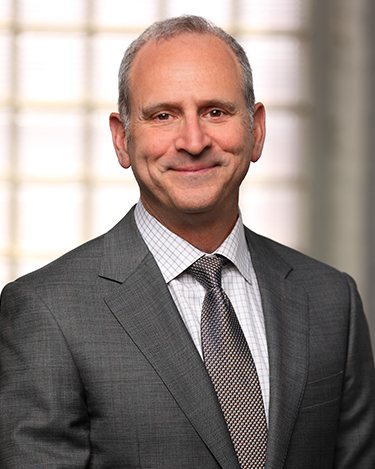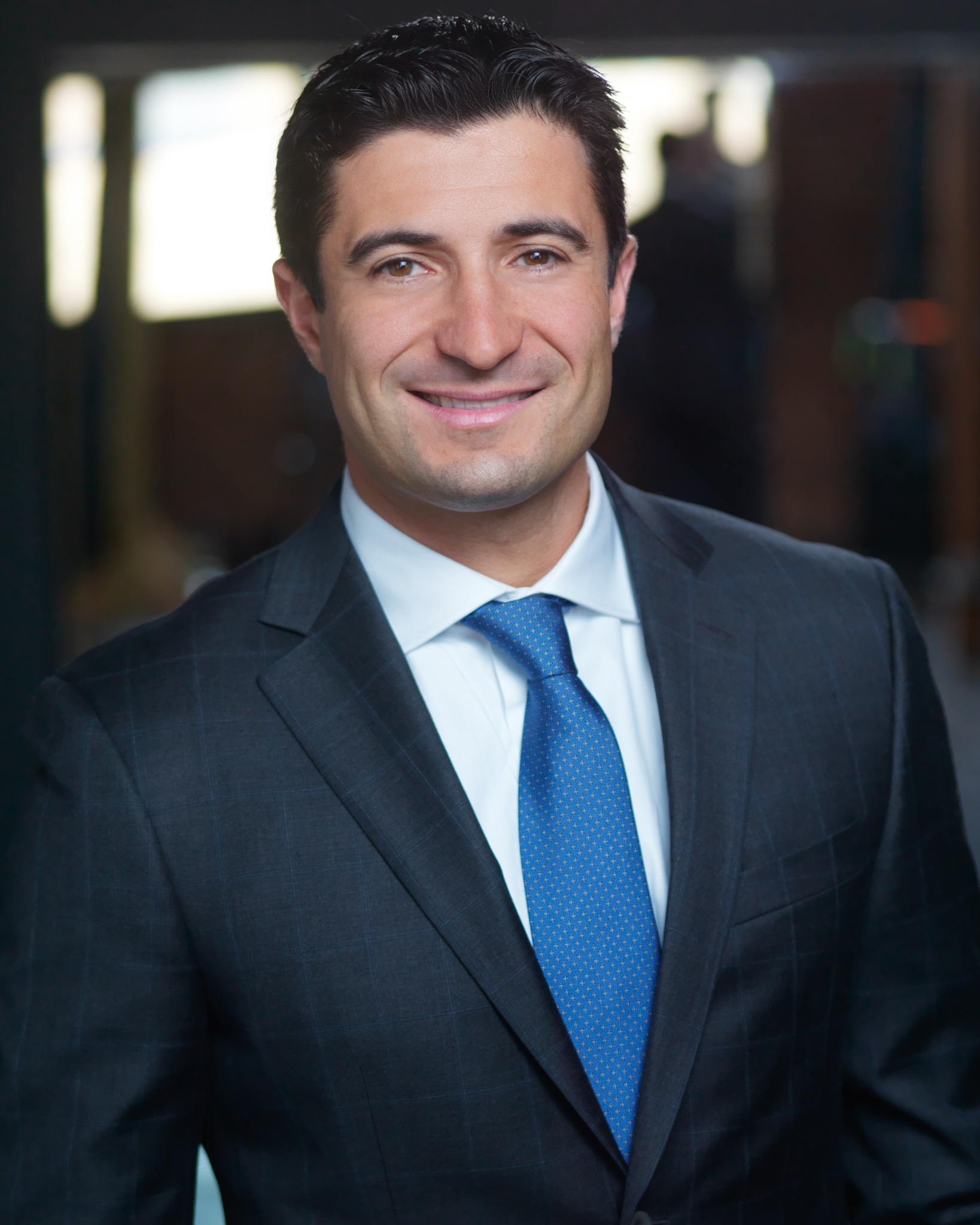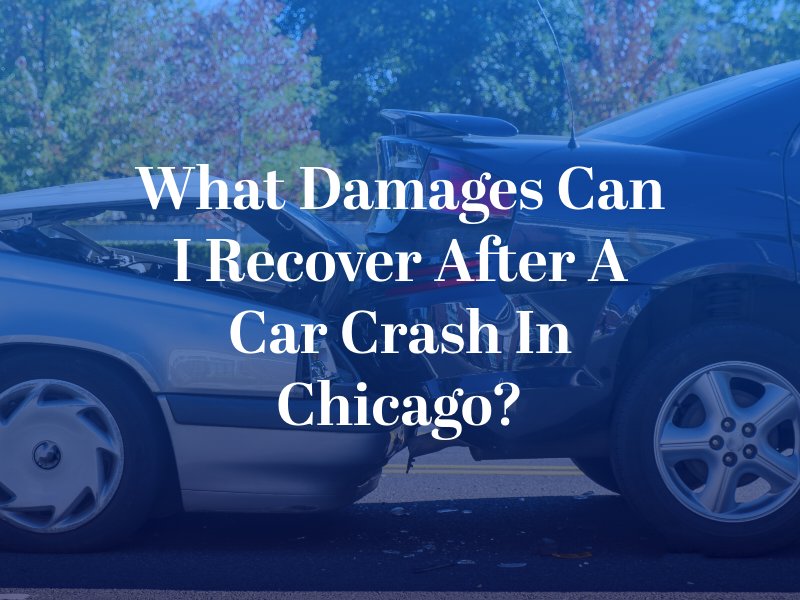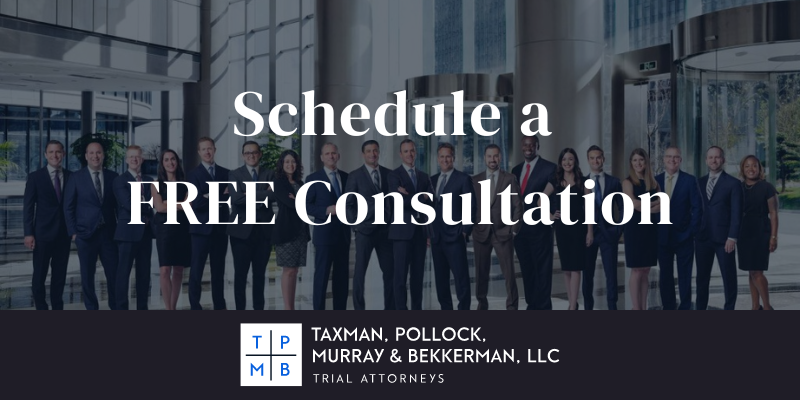Chicago Car Accident Lawyer
Motor vehicle accidents are among the most common personal injury cases handled by the team at Taxman, Pollock & Bekkerman, LLC. The injuries sustained in car accidents can be severe and life-changing, and the road to recovery can be long and costly.
Insurance companies often make it difficult to secure full coverage for your medical expenses, and in some cases, ongoing care may be needed for years. If you’re facing this challenge, our experienced Chicago personal injury lawyers will help you fight for the compensation you deserve.
Contact us today at (312) 586-1700 to schedule your free case evaluation. Our dedicated Chicago car accident attorneys are here to fight for you and guide you through every step of the process.
Why Choose Taxman, Pollock & Bekkerman to Represent You?
Our prominent Chicago personal injury law firm was established by four highly accomplished car accident attorneys. This isn’t mere rhetoric; it’s a testament to our years of dedicated service in the realm of personal injury law, advocating for victims of negligence.
Collectively, we offer decades of experience handling a wide range of injury and accident cases in Cook County and throughout Illinois.
- Proven results: Our personal injury law firm has recovered over $750 million in settlements and record-setting jury verdicts on behalf of our clients. We will advocate aggressively for your maximum possible compensation.
- Decades of experience: Our injury attorneys have decades of experience representing clients in their personal injury claims, including car crashes. We will leverage our knowledge and skill set to craft a compelling case in your favor and protect your rights.
- We take care of you: Navigating a car wreck claim can be difficult after a recent injury. Our Chicago auto accident attorneys will handle all aspects of your case on your behalf, allowing you to focus on recovery—not paperwork.
Meet Our Founding Chicago Car Accident Attorneys
The founding attorneys, Marc A. Taxman, Bradley N. Pollock, and Gerald J. Bekkerman, bring decades of experience and a shared commitment to justice. Together, they’ve secured numerous record-setting recoveries. Their collective work has shaped legal precedent, earned statewide and national recognition, and established the law firm as a trusted advocate for the seriously injured.
Known for taking on complex, high-stakes cases, they combine legal skill, courtroom strength, and a deep dedication to client results. Together, they’ve built a practice rooted in excellence, compassion, and relentless advocacy for the injured.
What Our Clients Have to Say
Working with this law firm was amazing” – Richard G.
The attention to detail, responsiveness, and guidance by the attorneys at this firm were exceptional. ” – Riley L.
From start to finish, they were thorough, meticulous, dedicated, and completely transparent throughout the entire process.” – Sergio L.
Read More Client Reviews and Testimonials
Our Awards
![]()






Notable Car Accident Settlements We’ve Secured For Our Clients
$4.8 Million
A combined verdict and settlement for a family of three that sustained significant injuries in a car crash in Chicago. This was a zero offer case in which our client was actually improperly ticketed.
$3.125 Million
Awarded in DuPage County for an ankle injury following a vehicle rollover collision.
$2.5 Million
A settlement amount was given for a bicyclist hit by a car and suffered multiple injuries.
$1.2 Million
Awarded for a rear-end collision with no property damage for a woman who had back surgery.
$1.045 Million
An excess verdict in an automobile case. We tried to settle the case without filing a lawsuit for the full policy limit of $250,000, but Allstate refused to offer the money and denied the claims, arguing that the injuries suffered by our clients were not related to the collision. Allstate ultimately settled for a total of $1,045,923 after the trial.
View More Case Results
Chicago Car Accident Resources
Click on any of the links below to jump to that section on the page.
- What Are My Legal Options After a Car Accident in Illinois?
- What Happens If I’m Partially At-Fault for a Car Wreck in Chicago?
- How Much Are Most Chicago Car Accident Settlements?
- What Damages Can I Recover in a Car Accident Claim in Chicago?
- How Long Do I Have to File a Car Accident Claim in Illinois?
- How Is Negligence Established in Chicago Car Accident Cases?
- Understanding the Entire Car Accident Case Process
- Contact Our Chicago Car Accident Attorneys Today
- Frequently Asked Questions
What Are My Legal Options After an Accident in Illinois?
Through a car accident lawsuit, you can recover damages for medical expenses, property damage, lost wages, and pain and suffering. If you are in a car wreck with an at-fault driver, you have three options to recover this compensation.
- You can file a car accident lawsuit against the at-fault driver in an Illinois civil court.
- You can file an insurance claim with the at-fault driver’s insurance company.
- You can file an insurance claim with your own auto insurance company if you have the appropriate policy.
What Happens If a Loved One Dies in a Car Accident?
In the most tragic cases, auto accidents can result in the wrongful death of a loved one. If you’ve lost a family member due to a car accident in Chicago, you may be able to file a wrongful death lawsuit with the help of a Chicago wrongful death lawyer.
What Happens If I Am Partially At-Fault for a Car Wreck in Chicago?
Being accused of causing or partially contributing to an accident can be a challenging situation, and it’s a tactic often used by insurance companies and at-fault parties to reduce their financial responsibility. By shifting some or all of the blame onto you, they aim to limit the compensation you may receive.
Under Illinois’ modified comparative negligence system, you can still recover compensation if you are less than 51% responsible for the accident. However, your compensation will be reduced by your percentage of fault. It’s best to contact a car accident attorney to fully understand your legal options.
How Much Are Most Chicago Car Accident Settlements?
The value of car accident settlements in Chicago can vary widely, as every case depends on the specific circumstances involved.
Factors like the severity of injuries, the extent of property damage, medical expenses, and the impact on your daily life all play a role in determining the final settlement amount.
While some cases may resolve for a few thousand dollars, others involving catastrophic injuries could reach six or seven figures.
What Damages Can I Recover in a Car Accident Claim in Chicago?
Under Illinois law, car accident victims have the right to recover two types of damages: economic damages and non-economic damages. These categories address both tangible financial losses and intangible suffering caused by the accident.
Economic Damages
Economic damages refer to the tangible financial losses you may experience due to car accidents. These are measurable costs that often come with bills, receipts, and invoices. Common economic damages include:
- Medical expenses: You can recover compensation for all past and future medical costs associated with your accident, such as doctor’s visits, surgeries, hospital stays, and prescription medications.
- Disability accommodations: If your injuries result in disabilities, you may require special accommodations. Compensation can cover home and vehicle modifications, mobility equipment, and live-in care or in-home assistance.
- Lost wages and future earnings: Car crash victims are often unable to work during recovery. You can recover damages for lost wages during your recovery period, as well as loss of future earning capacity and benefits if you cannot return to work due to permanent injuries.
- Vehicle repairs and replacements: You are entitled to compensation for property damage, which includes vehicle repairs and replacements for any other personal property damaged in the accident.
- Rehabilitation and therapy costs: Rehabilitation can be essential for recovery. Economic damages may cover physical therapy, occupational therapy, and mental health counseling.
Non-Economic Damages
Non-economic damages involve losses that do not come with a specific price tag but have significant impacts on your quality of life. These damages include compensation for emotional and physical suffering.
- Physical pain and suffering: This category covers the physical consequences of your injuries, such as chronic pain, permanent disability, disfigurement or scarring, and amputation or loss of function.
- Emotional pain and suffering: Non-economic damages may include compensation for emotional distress, anxiety or depression, and post-traumatic stress disorder (PTSD).
A Chicago car accident lawyer can help explain what damages you can try to seek and fight for maximum compensation for you.

How Long Do I Have to File a Car Accident Claim in Illinois?
According to Illinois Statutes Chapter 735. Civil Procedure § 5/13-202, car accident claims must be filed in civil court within two years from the date an injury occurs.
If a car crash victim fails to file a claim against the alleged negligent party within this two-year time frame, then the case will likely be dismissed, and the victim will not be able to recover compensation for their losses.
What About Filing an Insurance Claim?
Most Chicago car accident cases are resolved through settlements with insurance carriers. Each insurance carrier involved in a case will have its own reporting deadlines that individuals need to be aware of.
It is best to file a car accident claim within a day or two after the incident occurs to avoid the insurance carrier delaying or denying the claim for failure to meet their deadlines.
How Is Negligence Established in Chicago Car Accident Cases?
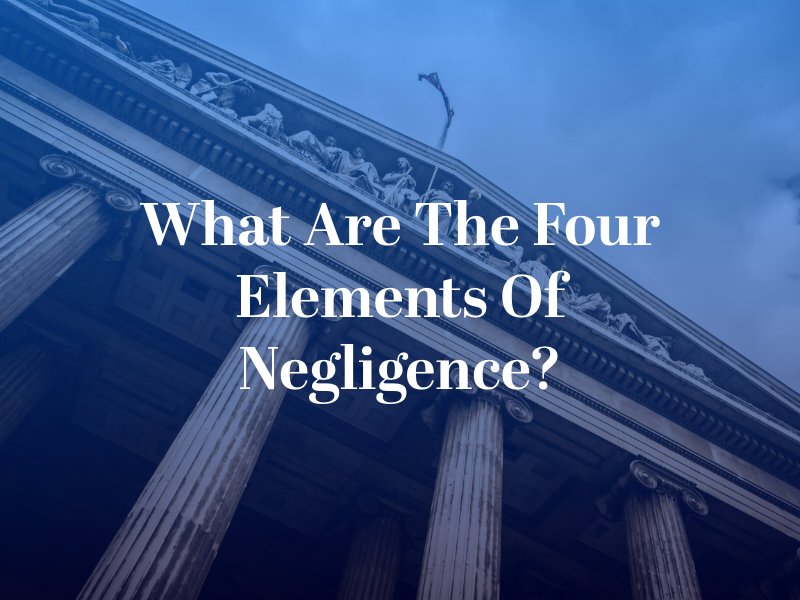
In the state of Illinois, a fault-based system is used to determine liability after a vehicle accident occurs. Some states use a no-fault system in which individuals will turn to their own insurance carriers for compensation after an accident, regardless of who caused the incident.
However, since this is a fault-based system, determining liability is important. This revolves around establishing negligence, which includes four separate elements.
The Four Elements of Negligence
- Duty. Every driver on the roadway owes a duty of care to others around them. This duty extends to those inside other vehicles as well as pedestrians, bicyclists, and motorcyclists. A driver’s duty includes operating the vehicle within the confines of traffic law. Establishing a duty of care in a car accident case in Chicago is not challenging. So long as drivers were operating vehicles, they did indeed owe a duty of care to others.
- Breach. Establishing a breach of duty is more challenging. Drivers can breach their duty of care to others on the roadway in a variety of ways. This includes but is not limited to speeding, following others too closely, driving while impaired, driving distracted, failing to yield the right of way, road rage incidents, and more. There will need to be an extensive investigation into the incident to determine whether or not one driver breached their duty of care.
- Causation. After establishing that a breach of duty occurred, a plaintiff and their car accident attorney will need to show that the breach directly or indirectly led to injuries or property damage.
- Damages. Lastly, it must be shown that the plaintiff sustained some sort of monetary loss as a result of the vehicle accident that occurred.
Understanding the Entire Car Accident Case Process
Below is a complete breakdown from start to finish of what you can expect for your car accident claim.
- Investigation: After a car wreck, a thorough investigation is essential to establish liability and gather evidence to support your claim. This process involves collecting a police report, witness statements, and any available video footage of the accident. Your accident attorneys will work diligently to determine who was at fault and build a strong case on your behalf.
- Medical treatment: Seeking immediate medical attention after a car accident is crucial, even if your injuries seem minor at first. Delayed symptoms can develop later, and medical documentation is key to your injury claim. It’s important to keep all records of medical bills, treatments, and prescriptions. These will be necessary for both your recovery and your legal case to ensure that you’re compensated for all current and future medical costs.
- Filing a claim with your insurance company: Once you’ve received medical treatment, it’s time to notify your insurance company about the accident. Your attorney will guide you through this process, ensuring you provide the right information without jeopardizing your claim. While you need to cooperate with your own insurer, be cautious about providing detailed statements without consulting a Chicago car accident lawyer first. Insurance companies often try to minimize payouts in a settlement offer, so legal guidance is critical.
- Further investigation: During this stage, your attorney may conduct additional investigation to gather more evidence or hire experts to strengthen your case. In complex cases, accident reconstruction experts may be brought in to recreate the incident and clarify how the accident occurred, which can be useful in establishing liability.
- Prepare a settlement demand: Once your medical treatment is complete and the investigation is finalized, your car accident attorney in Chicago will prepare a settlement demand to present to the at-fault party’s insurance company. They will draft a detailed demand letter outlining your injuries, damages, and the compensation you are seeking. This is a crucial step in the negotiation process.
- Discovery in preparation for trial: If the case does not settle through a settlement offer, the next phase is discovery, where both sides exchange information in preparation for trial. This may involve depositions, interrogatories, and document requests. Depositions allow car attorneys to question witnesses and involved parties under oath, providing valuable information for trial.
- Mediation and pre-trial conferences: Before the case goes to trial, there may be opportunities to resolve the dispute through mediation or pre-trial conferences, which can result in a settlement without the need for a full trial. Mediation allows both parties to negotiate with the help of a neutral third party. Often, this can lead to a fair settlement and avoid the lengthy trial process.
- Trial: If all previous attempts to settle fail, your case will go to trial, where a judge or jury will determine the outcome based on the evidence presented. Your auto accident lawyer will represent you at trial, presenting evidence, questioning witnesses, and making arguments to secure the compensation you deserve.
Contact Our Chicago Car Accident Attorneys Today
If you, a family member, a loved one, or someone you know has been injured due to negligence, it will cost you nothing to discuss your injury case with our Chicago car accident lawyer.
Reach out to our car accident attorneys anytime by filling out our online form or by phone at (312) 586-1700 to schedule a free consultation and discuss your claim.
Visit Our Chicago Office
Frequently Asked Questions
- Do I Need a Lawyer After a Car Accident in Chicago?
- Will My Car Accident Case Go to Court?
- What Should I Expect at the Initial Consultation?
- Is the Rear Driver Always At-Fault For an Accident?
- Should I Give a Statement to the Insurance Company?
- What Happens If the Insurance Company Denies Liability in a Chicago Car Accident Claim?
- What Are the Car Insurance Requirements in Illinois?
Do I Need a Lawyer After a Car Accident in Chicago?
Hiring a lawyer after a car accident in Chicago can protect your rights and strengthen your claim. An experienced attorney will handle communication with insurance companies, gather evidence, calculate the value of your damages, and negotiate for the best possible settlement.
Without legal help, it’s easier for insurers to take advantage and offer less than you deserve. Even if your case seems straightforward, an accident lawyer can identify issues you may not realize and help you avoid mistakes that could hurt your claim.
Will My Car Accident Case Go to Court?
Most Chicago car accident cases are resolved through settlements and never make it to court. However, if the insurance company refuses to offer a fair amount, it may be necessary to file a lawsuit.
Even after a lawsuit is filed, many cases still settle before reaching trial. Your Chicago car accident attorney will prepare your case thoroughly and represent you throughout the process, whether negotiating a settlement or presenting your case in front of a jury if needed
What Should I Expect at the Initial Consultation?
Your initial consultation with a car accident lawyer is an important first step. During this meeting, the attorney will review the details of your accident, discuss your injuries, and help you understand your legal options.
You’ll also have a chance to ask questions about the process and the attorney’s experience handling similar cases.
Most personal injury attorneys offer free consultations and work on a contingency fee basis, meaning you don’t pay unless they recover compensation for you.
Bringing any documents, such as police reports, medical records, or insurance company communications, can help the attorney better evaluate your case.
Is the Rear Driver Always At-Fault For an Accident?
Rear drivers are often, but not always, at fault in a rear-end collision. While they have a duty to maintain a safe following distance, accidents can involve other factors that shift liability, such as sudden stops caused by a third party.
Under Illinois’s modified comparative negligence laws, more than one driver can share fault, which may affect how much compensation you can recover.
Should I Give a Statement to the Insurance Company?
You must cooperate with your own insurance company to some extent, but you are not required to give a statement to the other driver’s insurer. Always consult with a car accident attorney in Chicago before speaking with any insurance company.
Remember, insurers, even your own, are focused on minimizing payouts. Their adjusters may try to use your statements against you to deny or reduce your claim.
What Happens if the Insurance Company Denies Liability in a Chicago Car Accident Claim?
If an insurance company denies liability, contact a Chicago car accident attorney immediately. Your accident lawyer can challenge the denial through an appeals process or by filing a personal injury lawsuit against the at-fault driver.
Even after a lawsuit is filed, insurance companies stay involved and often settle during the discovery phase, but your attorney can take the case to trial if necessary to fight for your compensation.
What Are the Car Insurance Requirements in Illinois?
Like most states, Illinois follows a fault-based system when it comes to motor vehicle accidents. This means that a driver who causes a car crash must pay for the damages of his or her victims, including other drivers, their passengers, pedestrians, and cyclists.
To uphold this financial responsibility, Illinois law requires all drivers to hold the following minimum amounts of liability insurance:
- $25,000 for injury or death per person per accident
- $50,000 for total injury or death per accident
- $20,000 for proper damage per accident
Every insurance policy in Illinois automatically includes uninsured motorist (UIM) insurance coverage equal to the policy’s liability limits. UIM coverage provides compensation in case you are in an accident with a driver who does not comply with Illinois’s car insurance laws. Penalties for driving without insurance coverage are steep; drivers could face a fine of at least $500, or $1,000 if the vehicle also has a suspended registration.

